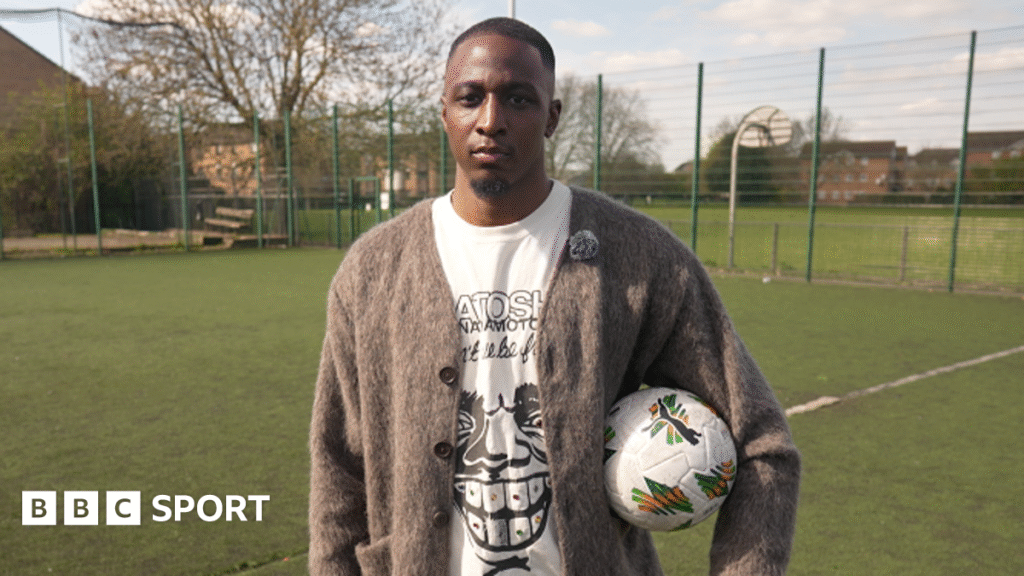Born in Camberwell, just south of the River Thames in London, Aribo and his family moved further out into the capital’s southern suburbs when he was six.
The youngest of three siblings, Aribo’s brother Paul used to accompany him on the short walk from their Mitcham home to play in the cage in nearby Lavender Park.
“I wanted to be a footballer,” he admits.
“I wouldn’t say that being down here made me think I’d be one, because I understood that you kind of had to be in the right places, being in academies and in a good set up.”
But unlike fellow Lavender Park alumnus Callum Hudson-Odoi, who spent a decade developing in Chelsea’s academy, Aribo’s route to the top had a different flavour.
It was a football charity, the Kinetic Foundation, which first showed faith, helping him earn a deal with non-league side Staines Town, for whom he made his senior debut in the sixth tier of English football as a 17-year-old.
A move to English Football League side Charlton Athletic soon followed, with Aribo spending four seasons with the Addicks before big-money moves to Rangers in Scotland and then Southampton.
He puts his success down to resilience,” he says.
“I think if you asked my siblings, my parents, even my friends, they’d say they saw a different kind of drive in me.
“I knew what I wanted and I didn’t give myself another option. I just had to believe in myself.”
With parents from Nigeria’s Yoruba ethnic group, Aribo’s Super Eagles debut against Ukraine in September 2019 was a moment of particular pride for the close-knit family who came along to watch Aribo being interviewed on his old patch.
“I’m 100% sure it’s a lot deeper for them, just because they grew up there and all their friends are from there, and family,” he adds.
Aribo says it has been “an honour” to pull on the green and white shirt, especially the “iconic” number 10 jersey previously worn by the likes of Jay-Jay Okocha and John Obi Mikel.
But last year’s Africa Cup of Nations (Afcon) final defeat against hosts Ivory Coast, in which Aribo was a substitute, is something he remembers as “really upsetting”.
“Sometimes you might think all that time was wasted. But you learn a lot from it also and I think that’s what we did,” he says.
“It was an amazing feeling being involved.”

